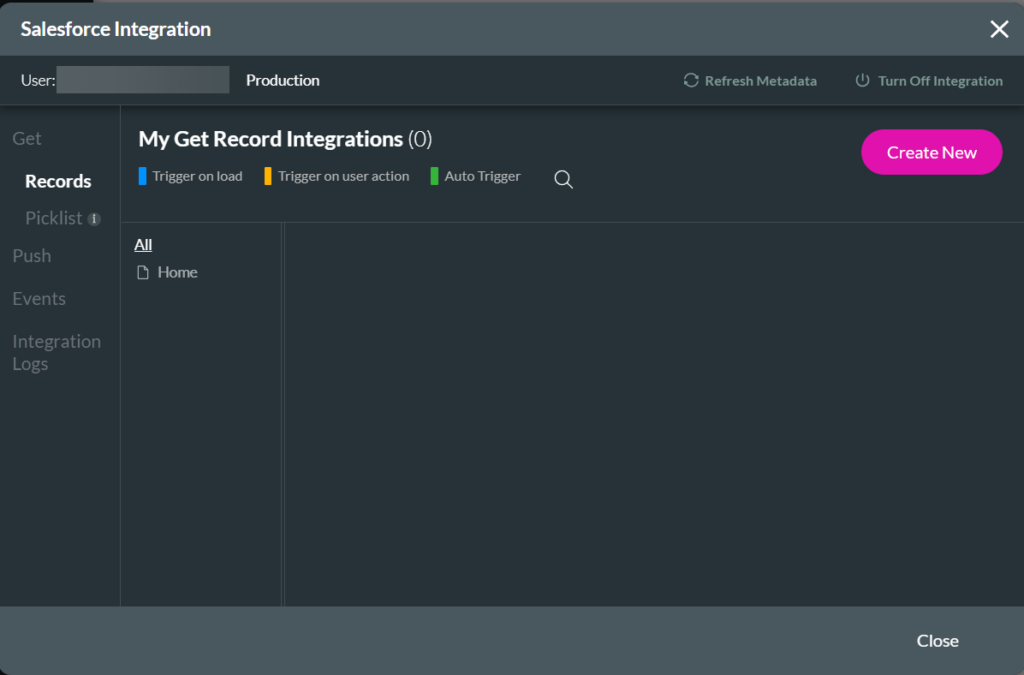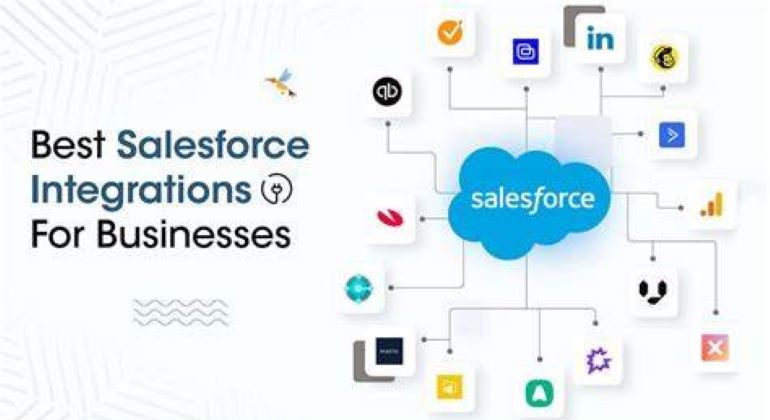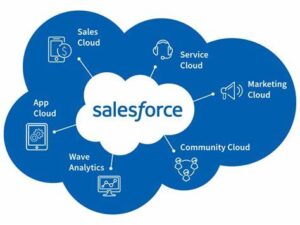
Salesforce integration is now essential for businesses of all sizes. As companies grow, so do their data and software demands. To meet these growing expectations, they must implement integration effectively. Salesforce integration merges multiple systems into one cohesive solution. It allows seamless data transfer between platforms, delivering a unified experience. Businesses boost productivity, create richer customer experiences, and gain real-time insights. Investing in Salesforce integration services is a smart and forward-thinking move.
Advantages of businesses investing in Salesforce Integration:
Businesses are now adapting to salesforce integration for the growth in business and excel in industry. Some of the major benefits of salesforce integration are:
1. Streamlined Data Flow and Enhanced Productivity
Salesforce integration minimizes errors and eliminates human data entry by streamlining data flow between platforms. It ensures seamless data transfer with your current systems, saving time and effort for your team. Employees can retrieve all relevant information in one place, avoiding the need to switch between applications. This unified approach boosts efficiency by making information easier to locate and act upon.
Additionally, optimized data flow instantly enhances productivity. Sales and marketing teams collaborate effortlessly, ensuring coordination and reducing delays. For example, integrating Salesforce with a marketing automation tool enables real-time lead tracking. Team members stay informed, allowing faster decision-making and efficient resource allocation.
Key Benefits of Streamlined Data Flow:
Reduces manual data entry: Minimizes the risk of human errors and saves time.
Improves data accessibility: Allows employees to access information from one platform.
Boosts productivity: Streamlines collaboration between sales and marketing teams.
Enables real-time updates: Keeps teams informed, facilitating faster decisions.
Supports efficient resource allocation: Ensures the right resources are used effectively.
2. Improved Customer Experience and Personalization
Personalized experiences are now expected by contemporary consumers. By providing a thorough understanding of every consumer, Salesforce integration helps companies to satisfy this need. Businesses can combine data from several channels, including marketing, customer care, and CRM, by using integration services. Businesses are able to provide customized experiences that successfully meet the needs of each individual client because to this unified data.
Emails, social media, and past purchases are just a few of the touchpoints where Salesforce integration keeps track of client interactions. Customer care agents can anticipate demands, address problems more quickly, and cultivate loyalty with the help of a single picture. Consumers are more satisfied and have higher retention rates when they feel appreciated.
Key Benefits:
Unifies Customer Data: Integrates CRM, support, and marketing data for a complete view.
Tracks Interactions: Monitors emails, social media, and purchases in one platform.
Enhances Personalization: Enables tailored experiences based on individual customer profiles.
Anticipates Needs: Allows representatives to predict customer needs before issues arise.
Speeds Issue Resolution: Equips teams to resolve issues quickly and efficiently.
Builds Customer Loyalty: Creates personalized experiences that foster loyalty and trust.
Improves Satisfaction: Increases customer satisfaction with every interaction.
3. Real-Time Insights for Data-Driven Decisions
Instant access to real-time data through salesforce integration enables companies to take prompt, educated decisions. Integrated systems guarantee that decision-makers have access to the most recent information on a single, unified platform by effortlessly sharing updated insights across departments. Businesses can spot patterns, identify areas for improvement, and quickly execute changes with the help of real-time data. By keeping an eye on important data like conversion rates and pipeline progress, sales managers can implement proactive measures that keep their companies competitive and responsive.
Key Benefits:
Access real-time data for timely decision-making.
Gain updated insights across all departments.
Visualize data on a unified platform.
Spot trends and identify improvement areas swiftly.
Monitor performance metrics for responsive actions.
Drive proactive strategies to stay competitive.

4. Scalability and Future-Readiness
Businesses’ operational needs alter dramatically as they grow. Scalability offered by Salesforce integration services enables businesses to adjust to changing demands. These services promote long-term growth by making it possible to link more tools and apps. Businesses may retain system cohesiveness while allowing expansion thanks to customizable integration techniques. Businesses may future-proof their operations by investing in Salesforce integration. They are able to smoothly incorporate cutting-edge technology like automation, AI, and predictive analytics. Because of its adaptability, Salesforce integration is a wise decision for businesses aiming for long-term success.
Key Benefits:
Scalability: Salesforce integration services adapt to changing business needs.
Enhanced Connectivity: Businesses can connect additional tools and applications easily.
Customizable Processes: Integration processes accommodate expansion while maintaining cohesion.
Future-Proofing: Investing in integration safeguards operations against future changes.
Technological Integration: Companies incorporate emerging technologies like AI and automation.
Sustainable Growth: Flexibility in integration supports long-term organizational success.
5. Enhanced Collaboration Across Departments
By bringing together teams from sales, marketing, finance, and customer support, Salesforce integration promotes cross-functional cooperation. Departments may simply exchange information and collaborate to achieve shared objectives thanks to this integration. Teams have access to the same data, which encourages alignment and transparency throughout the company. Reduced misconceptions are the result of improved communication. Teams consequently maintain their attention on corporate goals. Marketing and sales teams exchange customer insights on a regular basis. In order to provide relevant assistance, support workers can also check purchase histories. All things considered, integration produces a single platform that improves collaboration and increases productivity.
Key Benefits:
Enhanced Collaboration: Connects various departments for better teamwork.
Shared Information: Enables easy data access across teams.
Transparency: Promotes a clear understanding of shared goals.
Reduced Misunderstandings: Improves communication among team members.
Focused Objectives: Aligns efforts with business goals.
Contextual Assistance: Provides relevant information for customer support.
Increased Efficiency: Streamlines processes, boosting overall productivity.
6. Increased ROI through Cost Savings and Efficiency
By improving productivity and decreasing human error, Salesforce integration dramatically increases return on investment. It reduces operating expenses by automating processes like data syncing and reporting. Processes are streamlined and less time is spent on administrative duties when data is centralized. Businesses benefit from significant cost reductions as a result. A better customer experience increases customer retention, which fuels steady revenue growth.
Key Benefits:
Increased Efficiency: Salesforce integration boosts efficiency by automating repetitive tasks.
Reduced Errors: It eliminates manual data management, which is prone to errors.
Cost Savings: Automation of data syncing and reporting cuts operational costs.
Streamlined Processes: Centralizing data minimizes time spent on administrative tasks.
Enhanced Customer Experience: Improved service leads to better customer retention.
Sustained Revenue Growth: Happy customers drive consistent revenue increases.
7. Security and Compliance Benefits
Salesforce integration guarantees regulatory compliance and improves data security. Concerns about data privacy are growing among businesses, so having safe systems is crucial. Businesses can take advantage of cutting-edge technologies that safeguard confidential data by using Salesforce integration services. While role-based access restrictions restrict user permissions, encrypted data transfer protects data while it’s in transit. Additionally, ongoing monitoring spots possible breaches before they become more serious. Salesforce integration makes compliance easier in regulated sectors like healthcare and banking. Businesses preserve client trust and improve data safety by combining data into a safe framework.
Key Benefits:
Robust Security: Salesforce integration offers advanced security features for data protection.
Encrypted Transfer: It utilizes encrypted data transfer to secure information in transit.
Controlled Access: Role-based access controls restrict user permissions and enhance security.
Continuous Monitoring: Continuous monitoring identifies potential breaches proactively.
Compliance Support: It helps businesses meet regulatory requirements in various industries.
Customer Trust: Consolidated data within a secure system maintains customer trust and loyalty

8. Automation for Operational Efficiency
Automation from Salesforce integration greatly increases operational efficiency. Companies simplify a number of processes so that teams can concentrate on important work. Time and resources are saved as a result of this enhancement. Additionally, automation lowers human error, improving reporting and data entry accuracy. Sales teams can, for instance, program follow-up emails to be sent automatically in response to customer activities. As a result, this strategy ensures consistent outcomes by increasing conversion rates and reducing the sales cycle.
Key Benefits:
Streamlined Functions: Automate lead assignment, reporting, and notifications to enhance workflow.
Focus on Priorities: Free up teams to concentrate on higher-priority goals by minimizing repetitive tasks.
Improved Accuracy: Reduce human error in data entry and reporting, increasing overall data reliability.
Automated Follow-Ups: Set up follow-up emails based on customer actions to ensure timely communication.
Boosted Conversions: Enhance chances of conversion by automating customer interactions.
Accelerated Sales Cycle: Shorten the sales cycle through consistent, automated processes.
9. Faster Response to Market Changes
Salesforce integration enables companies to react quickly to client needs and changes in the market. Agility is increased through real-time strategy alterations made possible by integrated data. By examining consumer behavior and market trends, businesses can start focused advertising efforts. In highly competitive industries, where prompt adjustments have a direct impact on market status, this responsiveness is essential. Businesses may also effectively evaluate client data, track feedback over time, and pinpoint areas for product improvement with Salesforce integration. A company’s capacity to satisfy changing market demands is greatly improved by using such a proactive approach.
Key Benefits:
Real-Time Adjustments: Integrated data enables instant strategy modifications.
Targeted Campaigns: Companies launch campaigns based on customer behavior insights.
Increased Agility: Swift responses to market demands enhance overall flexibility.
Competitive Edge: Timely adjustments improve market standing in competitive sectors.
Continuous Monitoring: Businesses effectively track customer feedback for insights.
Proactive Improvements: Integration identifies opportunities for product enhancement.
10. Simplified Reporting and Analytics
Salesforce integration enables companies to respond quickly to shifting consumer demands and market situations. Businesses may make real-time strategy adjustments thanks to integrated data. For example, businesses might use insights from consumer behavior and new industry trends to launch tailored advertising efforts. In industries with intense competition, where quick decisions can have a big impact on market position, this flexibility is crucial. Companies are able to collect feedback, evaluate client data in-depth, and identify areas that require development. Businesses may efficiently adapt to changing market needs by embracing this proactive mindset.
Key Benefits:
Quick Response: Salesforce integration enables businesses to react quickly to market changes.
Real-Time Adjustments: Integrated data allows companies to adjust strategies immediately.
Targeted Campaigns: Organizations can launch campaigns based on customer behavior.
Data Analysis: Businesses analyze customer data for actionable insights.
Feedback Monitoring: Gathering customer feedback enhances product offerings.
Identifying Improvements: Companies pinpoint areas needing enhancement effectively.
Proactive Approach: This mindset helps businesses align with market expectations.
Strengthened Agility: Agility becomes a competitive advantage through Salesforce integration.
Summary
Salesforce integration is a game-changing investment that promotes long-term growth, increases efficiency, and improves customer experience. Businesses may guarantee scalability, obtain insightful information, and streamline data flow through integration. Automation made possible by the Salesforce integration process boosts output and allows for faster reactions to changes in the market. In today’s digital world, integration services provide a strong solution for data security and regulatory compliance, giving users piece of mind.
Businesses set themselves up for long-term success by investing in Salesforce integration. A cohesive, integrated system lays the groundwork for a business model that is ready for the future by optimizing customer satisfaction, collaboration, and return on investment. Consult salesforce development company for your business.
For more information and details, contact us or book a demo with us at Logic Mount today.
To get more details on salesforce integration about its benefits, features and process, checkout the blog below:
What is Salesforce Development and Integration ? – Logic Mount
Check out our other blogs on other websites:
What Are Salesforce Development and Integration Services? -Substack







Leave a Comment